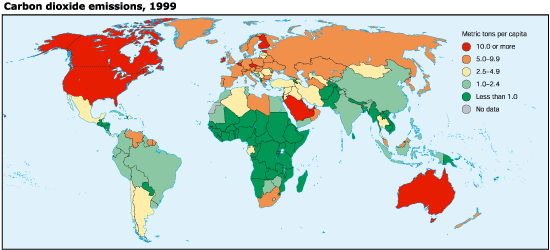Perverse Incentives
Following the class discussion on Friday, I found an article in the NY Times Saturday morning that seems to illustrate the ease with which a philanthropic health initiative can cause perverse incentives. Bill Gates is donating over $10 billion to a vaccination program for children throughout the world over the next 10 years. Included in his funding projections is a currently being developed malaria vaccine which will save the lives of approximately 1,000,000 children in Africa. My concern is that without the growth and development of the corresponding political, social and agricultural infrastructure, this increased population will further degrade the agricultural land causing more malnutrition, starvation, deaths and other socio-economic problems. An increased population, without an accompanying economic development policy, can cause more governmental instability problems furthering that condition on the African continent. Individual philanthropic endeavors are important contributions to world poverty problems, but without a concerted and well thought out program, the goals may be undermined by unperceived consequences. A public health initiative needs to also consider, and build into its plan, the increased health and population growth which will be the result with increased educational opportunities, economic initiatives and the environmental (in all forms from energy consumption to land sustainability) consequences.

This is a great example of perverse incentives. In fact I just attended a lecture by a Harvard professor who claimed malaria and AIDS were the Earth's natural defense against the overpopulation problem- one which developing countries are subject to.
ReplyDeleteNice point Kali,
ReplyDeleteNo matter how man tries to avoid natural selection, only the fittest will survive to reproduce!
Perhaps the existing government will be able to donate more time and resources to building areas such as education because they won't have to worry as much about health and merely surviving. Furthermore, with more people in the population, there will be a broader source of human resources to promote infrastructure, education, and overall economic development. Although there does need to be some foreign aid in developing nations with a rapidly increasing population, the outcome may not be as disasterous as it seems.
ReplyDeleteSince population growth increases the pressure on needed limited resources, I think it's inevitable that the continent will face greater problems in supporting the people and maintaining their health. So, maybe it'll be beneficial to invest in education instead; building a foundation from which they can have the opportunity to improve living conditions and lower their reproduction rates.
ReplyDeleteThe vast majority of people would likely prefer saving lives from treatable diseases than reducing environmental impact. This is not to say that there would definitely be increased strain on environmental resources in underdeveloped African countries. However, the tens of thousands who die from the major diseases in Africa (AIDS and malaria) each year have the right to medical treatment, regardless of where they live. I agree with the original poster that economic programs should be developed concurrent with population growth to mitigate environmental impacts.
ReplyDelete